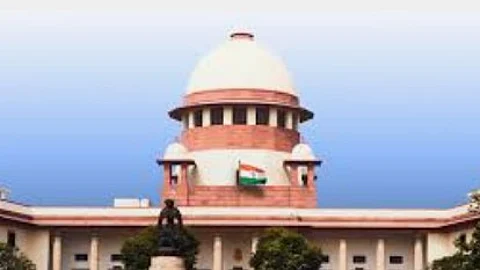

In a strong rebuke to the Uttar Pradesh government, the Supreme Court on Monday criticized the state’s “clandestine” and “tearing hurry” in promulgating an ordinance to take over Mathura’s iconic Bankey Bihari temple. The court suggested forming an interim administrative committee headed by a retired High Court judge to manage the temple’s daily affairs and oversee its development.
The move comes in response to the state government’s May 26 ordinance titled “Uttar Pradesh Shri Bankey Bihari Ji Temple Trust Ordinance, 2025”, which enabled a state-run trust to take full administrative control of the temple, including management of its funds. The ordinance followed a May 15 Supreme Court order that allowed the government to use temple funds to acquire 5 acres of land for a development corridor around the temple premises.
However, the ordinance was challenged by the temple’s management committee, which argued that the decision was taken without consulting key stakeholders like the Shebaits (temple caretakers) and members of the Goswami community, who have managed the temple for over 500 years under a 1939 court decree.
Hearing the matter, a bench of Justices Surya Kant and Joymalya Bagchi questioned the urgency behind the ordinance and criticized the state’s failure to issue a public notice despite a pending PIL in the Allahabad High Court since 2022. “We do not expect this from the state,” the court said, suggesting the ordinance was issued without transparency or due process.
Senior advocate Shyam Divan, representing the temple committee, stated that the temple was historically run by a seven-member committee, with majority representation from the Goswami community. He emphasized that the state’s ordinance effectively sidelines this traditional structure.
Representing the government, Additional Solicitor General KM Nataraj defended the ordinance, arguing that the temple stands on public land and that the trust aims to enhance pilgrim safety and improve facilities, especially in light of past stampede incidents.
The court, however, proposed recalling the May 15 order and appointing a neutral interim committee, which may include a retired judge, the local collector, ASI officials, and architects. The committee would be allowed to use part of the temple funds strictly for the benefit of pilgrims.
Highlighting examples like the Golden Temple in Amritsar, Shirdi, and Tirupati, the bench stressed the importance of holistic religious tourism and preserving heritage structures. It reiterated that development should be inclusive and respectful of religious traditions and stakeholders.
Senior advocate Kapil Sibal, appearing for other nearby temples, supported the call for recalling the earlier judgment and urged a balanced solution that respects both religious sentiments and developmental goals.
The court has given both the state and temple management one day to respond with suggestions on the proposed interim arrangement.
(This story is published from a syndicated feed)